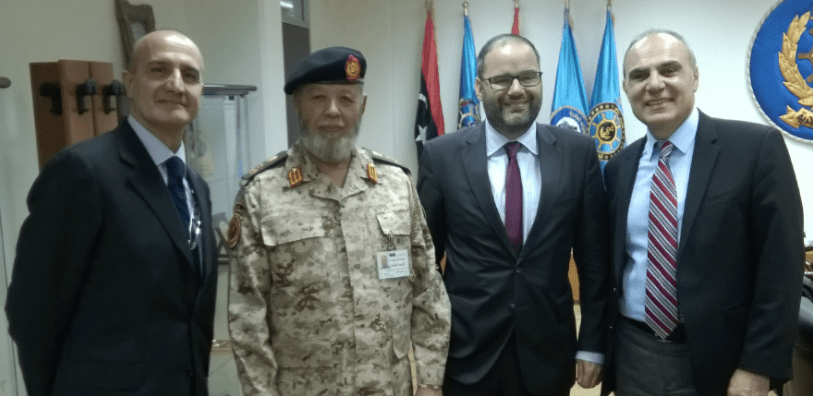Let Introverts be Introverts, Says Stevens Guest Speaker – New York News

Let’s explore some of the most interesting stories that have emerged from New York business schools this week.
To Be Successful, Organizations Should Let Introverts Be Introverts, Says Stevens Speaker – Stevens Institute of Technology School of Business News
Introverts make up a third to a half of our workforce, and yet the majority of workplaces are built for extroverts—from open floor plans, bustling activity, to meetings dominated by who can be most assertive. These environments are not conducive to introverts, who are most productive when left alone to work and create.
Susan Cain, speaker at the Stevens Institute of Technology’s Excellence Through Diversity Lecture Series, shares how important it is to create that space for different work styles.
“There is no such thing as a one-size-fits-all environment. We need to be thinking day by day, team by team, office design by office design, how we can set things up so that there are varying levels of stimulation.”
Cain adds, “There have been a whole bunch of studies that have come out over the years showing that most people believe that introverts make inferior leaders and are passed over for leadership positions. On the other hand, there is another set of studies showing that introverts in leadership positions often deliver out-sized performance returns.”
You can read more about Cain’s lecture series event here.
Faster Internet Fuels Job Growth in Africa – Columbia Business School News
New research from Columbia Business School‘s Jonas Hjort and Uppsala’s Jonas Poulsen finds that the expansion of fast Internet in Africa has created jobs, increased employment rates, and greatly benefited populations with lower levels of education.
Professor Hjort writes, “These findings shed light on how modern information and communications technology can affect employment rates, structural change, job inequality, and firm growth in the poorest region of the world.”
“Our results imply that faster Internet allows firms to create (or retain) a lot of positions that otherwise would not be tenable in Africa,” adding that “access to information and communication can help give people with lower education a more secure foothold on the economic ladder, and improve living standards.”
You can read more about the growth here.
Impact Investing is About to Become More Mainstream Than Ever – Gabelli Connect
Last month, 350 guests gathered for Fordham’s inaugural Impact Investment Convening to discuss investing for social and environmental good.
Blended finance projects are already cited by the United States, Canada, Netherlands, and the Nordic countries as “proof that private capital could answer the problems that, historically, government couldn’t.” Investors are successfully driving interest in socially responsible investing and there is great potential to reach untapped markets.
The Convening was organized by Peter Lupoff, MBA ’86, Gabelli executive-in-residence and Center for Research in Contemporary Finance fellow. Lupoff explains, “What’s more is that the greatest transition in wealth is about to occur, from boomers to millennials. They care about how their money is spent, socially and environmentally, so it makes good sense for the traditional markets to embrace this – the capital will demand it.”
Keynote speaker Danielle Kayembe, CEO and founder of GreyFire Impact, points out, “The gender divide in consumer products and industry at large reflects a huge untapped area. Some estimates say women drive up to 85 percent of consumer spending in the United States, and, globally, women control some $36 trillion in total wealth.”
You can read more about impact investing here.
New MBA Jobs: Goldman Sachs, Walmart, Coca Cola, and More

A new week means a new rundown of the best new MBA jobs out there! This list features entry level positions and roles for seasoned vets, so there’s something for everyone here. Apply today and get your post-MBA career started right away!
Lehigh Student Startup Kickstarts Ghanian Shea Industry

When it comes to startup companies, often the best route of success means going right to the source. For Lehigh University College of Business and Economics grad Miles J. Davis’ (’16), that meant traveling all the way from Bethlehem, PA, to West Ghana for the purest shea butter in the world.
Shea butter is famous for its cosmetic and skincare applications, as well as its uses in waterproofing waxes, cooking oils, wood preserving, toilet tissue, and candle-making. Shea butter is produced by extracting fat from the nut of the fruit of the shea tree, which is indigenous to the dry Sahel region of Africa, which spans northern Ghana, Senegal, Ethiopia, and the Democratic Republic of Congo.
In his master’s thesis, Davis outlined a plan to develop an ecologically, agriculturally, and financially sustainable production system for shea butter processing in Ghana.
“My dream for this project is to help develop a permaculture system that will have a collective positive impact,” Davis tells Lehigh. “Permaculture is a whole functioning system where everything coexists in balance. It requires a lot of observing and listening to learn how natural systems work and how to make human systems function just as organically and just as naturally.”
Davis’ research focuses on land-use policy. “Who owns the land? Who can get access to shea trees to make shea butter from the shea nuts? What policies are in place to protect these forests so people don’t cut down the trees to get firewood for their cook stoves? How do we develop better roads and transportation methods for people living in this region so they can get to the main market and sell their stuff?”
Superior Shea is just one small step in Davis’ vision for an economically emerging Ghana.“Ghana has one of the strongest economies in Africa. It is definitely on the rise. There’s a lot of potential for growth, in terms of sustainability through business, improved infrastructure and sanitation.”
You can read more of Kurt Pfitzer’s in-depth interview with Davis here and get more familiar with Superior Shea on Facebook.
Beyond Business School: Meet the Cambridge EMBA Who Is Rebuilding Libya

As an Executive MBA (EMBA) student, you don’t have to choose between your career and your studies, which was exactly the case for Roland Friedrich, who worked as a senior political affairs officer for the United Nations while pursuing his EMBA at Cambridge Judge Business School. Friedrich graduated with his EMBA in 2016, but through his studies he was involved in the rebuilding of Libya as part of the United Nations Support Mission in Libya (UNSMIL). This mission, established in 2011, supports the country’s transitional authorities and institutions after the overthrow of Colonel Gaddafi.
Of his role, Friedrich said in a Cambridge Judge blog: “42 years of authoritarian rule left behind weak institutions, multiple factions, and militias vying for influence and an abundance of weapons. Six years after the 2011 revolution, the country faces a prolonged political, security and—more recently—economic crisis. The challenges range from terrorism and organized crime and deteriorating living conditions to political polarization and fragmenting institutions.”
As for how he got involved in Libya, it started with a career in the German armed forces where he focused on conflict management, security sector reform, and Middle Eastern affairs. From there, Friedrich spent eight years at the Geneva Centre for the Democratic Control of Armed Forces as a security sector reform advisor. After that, he joined the UN to work directly with Libya.
Over the course of his work, Friedrich has been involved in some incredible initiatives, including ceasefire negotiations between the ‘Libya Dawn’ and ‘Dignity’ militias, negotiating the Libyan Political Agreement, and advising the Special Representative of the UN Secretary-General for Libya on the mission’s policies in the region.

Friedrich (EMBA ’16) pictured third from left. Image via Cambridge Judge website.
“[This work] requires a thorough understanding of the local players and their motivations, a clear vision of what you want to achieve, and lots of creativity and flexibility when facilitating a deal,” he wrote. “There are quite some shared aspects here with strategy development and negotiations in the business world.”
And it was these “shared aspects” that made an EMBA at Cambridge Judge such a good idea. In his work, particularly dealing with the balance of power between nations, Friedrich found that understanding the latest management approaches was a great way to enhance his work in mediation and strategy.
“Cooperation between the UN and the private sector is picking up sharply, not only in the humanitarian and development fields but also in peace and security,” Friedrich explained. “The EMBA helps me get on top of the latest management concepts and practices. It also helps me develop a thorough understanding of strategic management and organizational behavior—issues that have always fascinated me and that are of direct relevance to my work.”
For a full account Roland Friedrich’s experience as a UN officer and EMBA student, check out the blog on the school website.
This article has been edited and republished with permissions from Clear Admit.
25 Mandela Washington Fellows Arrive at USD

Each year, 1,000 emerging African business men and women come to the United States to participate in the Mandela Washington Fellowship for Young African Leaders. They visit for a month as part of the flagship Young African Leadership Initiative (YALI). The Bureau of Education and Cultural Affairs of the United State Department of State and IREX sponsor the program. Continue reading…
Friday News & Notes: The Trump Effect, Career Bumps And Early Careers

Good morning and happy Friday!
Here are a few stories you may have missed from the week that was …
